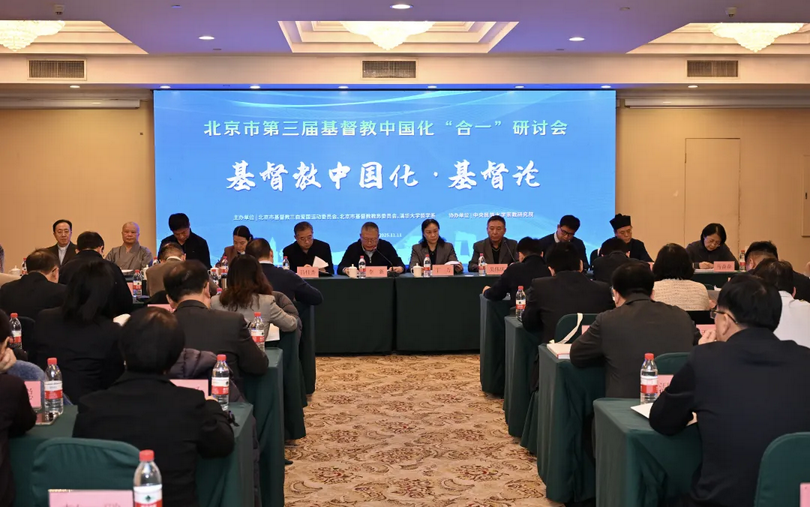On November 11, the Third "Unity Symposium" on the Sinicization of Christianity was convened in Beijing. The event was jointly organized by the Beijing CC&TSPM and the Department of Philosophy at Tsinghua University, with co-organization by the Institute of Religious Studies at Minzu University of China.
According to Beijing CC&TSPM, the symposium centered on the theme of "Christology," receiving 59 papers that examined topics including biblical interpretation, historical development, and cultural integration. The discussions explored practical approaches for integrating traditional Chinese culture into expressions of Christian faith, promoting Christianity's deeper adaptation to socialist society.
Li Xin, director of the Beijing Municipal Ethnic and Religious Affairs Commission, commended the achievements of the municipal CC&TSPM in advancing the Sinicization of Christianity. He also outlined four expectations for future work: first, to uphold the correct political direction; second, to deepen cultural integration and highlight Chinese characteristics; third, to strengthen ideological development and promote the transformation of outcomes; and fourth, to enhance standardized management and advance the rule of law in church governance.
In his speech, Rev. Wu Weiqing, chairperson of Beijing TSPM, emphasized the importance of reflecting on how to express Christ in ways that remain faithful to Scripture while being deeply rooted in Chinese culture. In her concluding remarks, Rev. Liu Cuimin, president of Beijing CC, noted that the Sinicization of Christianity is not only a theoretical exploration but also a lived practice for believers.
The symposium brought together more than 90 participants, including scholars and experts from academic and religious circles, leaders of Beijing CC&TSPM, senior pastors from various churches and meeting points, as well as faculty and students from Yanjing Theological Seminary.
As an academic platform established by the Beijing CC&TSPM, the "Unity Symposium" embodies the Chinese cultural concept of the harmony between heaven and humanity. It also resonates with the Christian pursuit of harmony between the church and society, reconciliation between God and humanity, unity within and beyond the church, and communion between the church in China and the universal church.
The symposium focuses on addressing the perceived tensions between systematic theology as recognized by the global church, the core socialist values, and the fine traditional Chinese culture. Through in-depth discussions and research, it seeks to correct misunderstandings and promote the broadest possible consensus.
To date, three sessions of the "Unity Symposium" have been held, each centering on a key theological theme—Systematic Theology, Doctrine of God, and Christology. According to the plan, the symposium will continue to explore the subfields of systematic theology year by year until the Complete Systematic Theology with Chinese Characteristics is eventually published.












